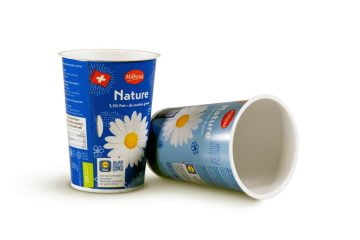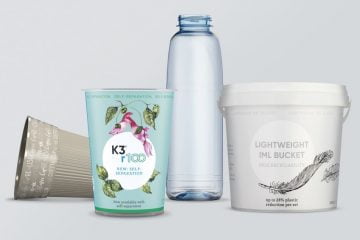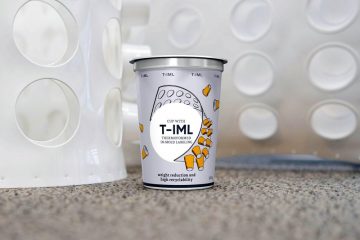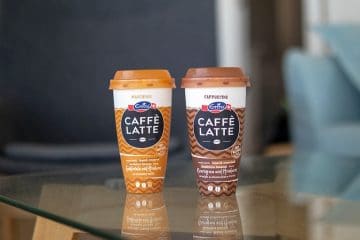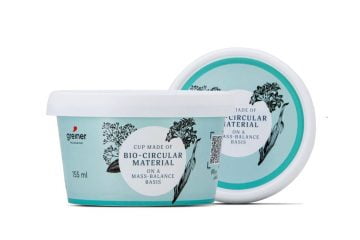Greiner Packaging and Plastic Bank aim at creating a circular economy that prevents marine littering and at the same time supports local communities.
(video: Greiner)
Greiner Packaging is taking active steps to drive the circular economy forward. One great example is its K3 cups for yogurt, which is made from an environmentally friendly cardboard-plastic combination that can be printed with an attractive design. This particular K3 cups is now the focus of a project carried out by Greiner Packaging in Switzerland, a move that reflects the company’s strong commitment to highlighting the outstanding recyclability of polystyrene (PS).
The goal is to manufacture food packaging from recycled PS. This project marks the first time that 100 percent mechanically recycled PS has been combined with 100 percent recycled cardboard. The complete solution was tested on the typical Swiss yoghurt twin packs – and the results are very promising.
100 percent mechanically recycled PS used for first time with the K3 cups
The high levels of purity reached by PS in tests demonstrate its outstanding suitability for mechanical recycling. In fact, mechanically recycled PS boasts 99.9 percent purity and thus has the potential to achieve food-grade status. While the PS recycled plastic used in these tests has yet to be approved for food contact applications, the initial trials offer proof that Greiner Packaging is already capable of producing yogurt cups with 100 percent mechanically recycled PS. Certification of the material is already underway. This pilot project was facilitated by Styrenics Circular Solutions (SCS), the value chain initiative to realize the circular economy for styrenic polymers. As part of its commitment to sustainability, Greiner Packaging initiated joint activities with SCS with a view to developing food contact applications using recycled PS.
Greiner Packaging actively working toward closed loop for PS

As a member of SCS, Greiner Packaging promotes sustainable measures for r-PS. Currently, these efforts are focused on the benefits of using mechanically recycled PS: a low carbon footprint thanks to sustainable materials and the creation of closed material loops. In other words, the recycled material does not need to be mixed with virgin material – so a sustainable overall concept can be realized without difficulty. “The goal of obtaining food contact approval for 100 percent mechanically recycled PS and its process can only be achieved with the involvement of many companies across the entire value chain. Our activities in this field are currently focusing on our initial tests with a customer in Switzerland,” explains Tobias Strasser, Managing Director at Greiner Packaging Diepoldsau in Switzerland.
Info about Greiner Packaging
Greiner Packaging is am European manufacturer of plastic packaging in the food and nonfood sectors. The company has enjoyed a reputation for outstanding solutions expertise in the fields of development, design, production, and decoration for 60 years. Greiner Packaging responds to the challenges of the market with two business units: Packaging and Assistec.
While the Packaging unit focuses on innovative packaging solutions, the Assistec unit is dedicated to producing custom-made technical parts. Greiner Packaging employs a workforce of around 5,000 at more than 30 locations in 19 countries around the world. In 2019, the company generated annual sales revenues of EUR 690 million (including joint ventures), which represents more than 40 percent of Greiner’s total revenue.





